![]() The information provided by our expert should not constitute a diagnosis of your condition. Always consult a medical practitioner or healthcare provider for a formal diagnosis. By making use of this content, you agree that ConceiveEasy and the expert assume no liability.
The information provided by our expert should not constitute a diagnosis of your condition. Always consult a medical practitioner or healthcare provider for a formal diagnosis. By making use of this content, you agree that ConceiveEasy and the expert assume no liability.
Getting pregnant isn’t always as easy as we think it should be. Many women, myself included, suffer from some sort of fertility trouble, or have some sort of difficulty when it comes to getting pregnant. Claim Your 20 Free Pregnancy Tests – Click Here
Experts say that as many as one in six couples have some sort of issue when it comes to fertility or trying to conceive. It’s an issue that for a long time, was kept behind closed doors, never to be talked about or discussed. However, now that we are in the digital age of sharing and social media, celebs and regular people just like us have become more open and willing to share their stories of fertility struggles and overcoming the odds to become pregnant.
This really opens up the lines of communication and makes it seem much more “real” and “normal” to experience fertility problems.
This really opens up the lines of communication and makes it seem much more “real” and “normal” to experience fertility problems. No longer is it something to be embarrassed about, or ashamed of, nor is it something to sweep under the rug and ignore. It’s okay to put it out there and talk to other people about it, and it’s okay to seek help if you feel that you need it.
If you are already experiencing fertility issues, or even if you are just starting to try to conceive, there are so many different things out there that you can do to help give your fertility a boost and to improve your chances of getting pregnant. Many of these things are probably things you are already familiar with, and could even be things that you are already doing on your own right now.
Hopefully this article will serve as a one stop shop for ideas, tips and tricks for women who are trying to conceive.
Just because you are struggling with your fertility, doesn’t mean that you have to rush right out and seek help from a fertility doctor or specialist. Many women don’t realize that there are actually many things that you can do at home on your own to help boost your fertility. It is totally possible to take matters into your own hands, and it’s totally possible to boost your fertility on your own.
Hopefully this article will serve as a one stop shop for ideas, tips and tricks for women who are trying to conceive, by offering up some new ideas as well as some reminders of old ones that might be helpful on the trying to conceive journey. Read on for some of the best tips out there for trying to get pregnant.

There are many different things that women (and men, too!) can do to improve or increase their fertility. There are lifestyle changes, medications and treatments that can take whatever problem might exist and simply get rid of it. However, there are very few things in life that can actually not be changed or helped. Age and fertility is one of those things.
Many women don’t even actually realize the huge and vast effect that age has on fertility, but it’s definitely something that can not be ignored. It is definitely something that many people don’t pay attention to. You can change many different things about your fertility, but age is a biological thing that we are all stuck with and it can’t be changed or compromised. Read on for more info about how your fertility changes through the years based on what stage of life you are in.
Age is a biological thing that we are all stuck with and it can’t be changed or compromised.

It’s really no secret that fertility in a woman’s 20’s is definitely at it’s peak. Women in their late teens and early 20’s seem to get pregnant most easily, and it’s usually a bit surprising to hear of women in this age range as having fertility troubles. This is because, simply put, these women have the freshest eggs.
This is because, simply put, these women have the freshest eggs.
You see, when a woman is born, she is born with a set or finite number of eggs. These eggs are the only eggs that she will have for her whole entire life, and when they are gone, they are simply gone, and she will then be unable to have children. Every month from the time a woman starts her period, an egg is released from the ovaries, and her egg supply is slowly dwindling away. Crazy, isn’t it?
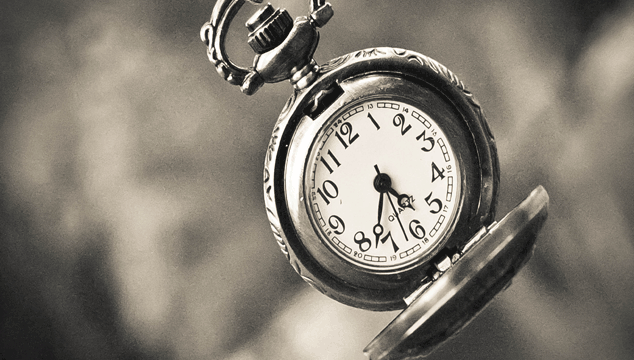
Tick, tock, tick tock
This is also what can be referred to as a woman’s “biological clock” ticking. There is only a certain time frame that a woman is physically able to get pregnant and once that time frame is passed, no amount of fertility treatments, supplements or medical miracles can get that back. It’s simply the facts.
Want to hear a crazy thing about the human body? The human body is actually so complex and so smart that it knows which eggs of a woman’s are the very best quality eggs. The body will use these eggs first, assuring a woman the best chance of getting pregnant and having a healthy pregnancy and a healthy baby, the sooner she uses those eggs. This is the reason why younger moms have a lower chance of miscarriage and also a lower chance of having a baby with birth defects as opposed to older moms.
The 20’s is a woman’s prime time for getting pregnant, and it usually happens pretty quickly and easily. However, the downside to this is that women in their 20’s are sometimes focused on getting their lives set up, such as going to college, building their careers, or finding a partner, and they might not be ready to have a baby just yet.

A woman’s 30’s is another time of relative calm when it comes to fertility. The early thirties are a pretty easy time as far as fertility goes. Most women have about the same likelihood of becoming pregnant in their early 30’s as they do in their late 20’s. However, there is sometimes a slight dip in fertility around the time a woman turns 30. The early 30’s, for the most part, are relatively calm when it comes to fertility. This is a pretty good thing, since during a woman’s 30’s, she is most likely to be ready to have a baby. It’s more likely for a woman in her 30’s to be settled down with a stable home, partner and career, as well as having all of her finances in order. As far as life stages go, this is probably a woman’s “prime time” to have a baby, would be her early 30’s (or also late 20’s).
After age 35, that’s when things start getting a little hairy as far as fertility is concerned.
A woman’s body takes a pretty drastic drop in fertility around her 35th birthday. By this time, the “best” quality eggs from a woman’s late teen years and early 20’s have already been used.
Women might start to have a harder time becoming pregnant and might encounter more fertility issues along the way. Women who are pregnant might also begin to have more pregnancy complications and a higher risk of miscarriage as well during this time. This time in a woman’s life is definitely when that “biological clock” begins to tick louder and louder, and women might be worried about becoming pregnant before their “time is up”, so to speak.
Tick, tock, tick, tock

As you might guess, as a woman begins to approach her forties, her fertility once again takes a dramatic drop, a certified nose dive. By this point in a woman’s life, her egg supply is probably beginning to get a bit low.
As a matter of fact, once a woman reaches age 45, the possibility of her getting pregnant using her own eggs, naturally, is virtually nonexistent.
The eggs that are left by the time a woman is in her 40’s are not always of the best quality, either. This means that the risk of having a baby with a birth defect such as Down Syndrome is much higher for women in their 40’s. Also, women in their 40’s are much more likely to suffer from a miscarriage, due to the fact that the remaining eggs are somewhat likely to have chromosomal abnormalities and issues, causing spontaneous miscarriage.
As if that wasn’t enough good news, women who get pregnant in their 40’s are more likely to have a high risk pregnancy along with pregnancy complications such as gestational hypertension or gestational diabetes.
This is not to say that women in their 40’s can not get pregnant or have healthy pregnancies, but women should keep in mind that it is more likely to encounter problems when you get pregnant later in life. So try not to wait!
So try not to wait!
There are many women out there that do defy the odds and get pregnant naturally in their 40’s. Many of them go on to have healthy pregnancies and healthy babies as well. However, it’s so important to know that this is not always the case. Women who are trying to get pregnant in their 40’s need to be aware of the risks and go into trying to conceive with an open mind, and also an informed mind.

Many people wonder about male age and fertility and if it actually does have any impact on a woman’s likelihood of getting pregnant. The truth of the matter is that men can technically father a child for many, many years. Just look at Billy Joel, who welcomed his third daughter at the age of 68. Larry King, Steve Martin, Robert Deniro all round out the late 60s as a father list. However, just because a man can be fertile at an older age, doesn’t mean it happens perfectly or without problems every time.
Just look at Billy Joel, who welcomed his third daughter at the age of 68.
Men’s age matters when it comes to fertility, although perhaps not as much as women’s age. In fact, a recent study that was done with 2000 women, and concluded that women with partners over the age of 45 took FIVE TIMES longer to get pregnant than women who had partners under the age of 35.

There is simply no way to look at that data and think that male age and fertility doesn’t matter. It really does make a difference, and it’s important that people start to take notice of this.
As men get older, their bodies start to make less and less testosterone. This can mean an increase in fertility problems, and also, a greater chance of fathering a child with genetic problems due to sperm abnormalities. In fact, recent studies have shown a real correlation with age and certain genetic issues such as Down Syndrome, dwarfism, and schizophrenia.
As a man ages, he continues to make sperm, obviously, but that doesn’t mean that the sperm is high quality. Older men have lower sperm counts, but they also have more problems with sperm motility (the way the sperm moves in the body), and sperm morphology (the way the sperm is shaped).
Sperm motility, or the speed in which the sperm moves, is said to be up to 37 percent slower as a man ages.
This can mean a harder time getting the sperm to reach the egg in time. Sperm from older men are also sometimes misshaped, which means a higher chance of genetic problems. This is definitely something to keep in mind when you are thinking about trying to conceive, and you should know that if your partner is older, there is definitely a chance of having a harder time getting pregnant.

One of the most important parts, if not THE most important part of trying to conceive is knowing when your fertile days are. There are only a few days each month where a woman can get pregnant. These are known as her “fertile days”. When the egg is released from the ovary, it travels down the fallopian tube to wait for the sperm to fertilize it. However, what most women do not know is that soon after the egg’s release, it actually starts to die. The egg only lasts about 24 hours (one full day) from the time it is released before it will start to disintegrate. This is a fact that many people do not realize.
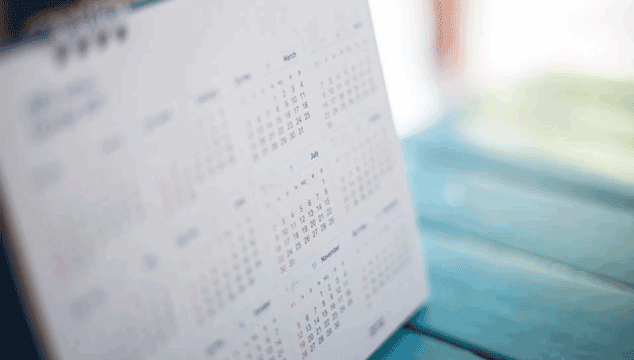
There are only a few days each month where a woman can get pregnant.
What this means is that the timing of sex during ovulation is super important. This 24 hour period is actually and technically the only time during a woman’s cycle that she will be physically able to get pregnant.
The good news is that sperm can actually live much longer than the egg. Sperm has a life span of about 72 hours (or three days) before it begins to die. Because of the longer life span of the sperm, couples can actually plan to have sex before the day of ovulation and therefore can have the sperm ready and waiting when the egg is released. This increases the chance of getting pregnant because the sperm can already be there when the egg is released, and this improves the likelihood of a pregnancy taking place.

For women who are just starting out on their journey of trying to conceive, ovulation predictor tests are a good place to start. They are easy to use, fairly cheap and don’t require a whole lot of work or effort.
These tests help a woman to identify when her fertile days will be. The way that these tests work is very similar to the way that a home pregnancy tests works. The test strip is used with a woman’s urine to give a result. Each test strip will have a control line, which is a line that stays the same color and darkness each time that the test is taken. The second line that the test has on it is a test line. This line will vary in color and darkness, depending on how close a woman is to ovulation.
When the test line is as dark or darker than the test line, that indicates that a woman’s body has had a surge of LH (Lutenizing Hormone). This surge of this hormone indicates that ovulation should occur within about 24 hours from the time of a positive ovulation test.
Ovulation Predictor Kits are a great asset for couples who are just starting out on their trying to conceive journey. They are super cheap and readily available all over. You can get them online or in local stores such as drug stores or big box stores like Target or Walmart. Ovulation Predictor Kits (also sometimes known as OPK’s) are really easy to use as well.
You can take one every day until you get the hang of the general idea of what time of the month your ovulation should occur. Then, after you have an idea of what time of the month your ovulation should occur, you can pretty much narrow it down and know when to take your ovulation test. This can be great for women who would otherwise have no clue as to when to expect their ovulation to occur. I like to think of them as ovulation cheat sheets!
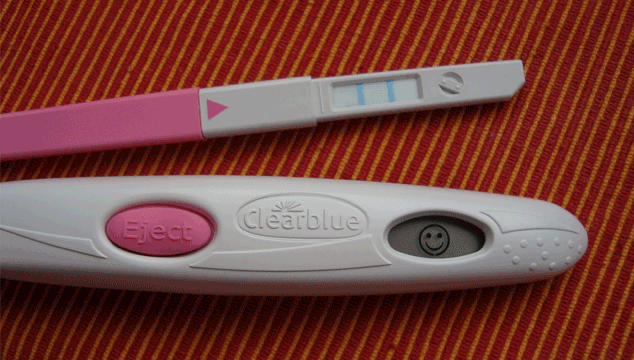
I like to think of them as ovulation cheat sheets!

We’re in the technology age, and with that come apps!
There are a ton of different fertility apps out there that can help women know when their ovulation is getting ready to happen. The important thing to remember is that these apps are not always accurate. They are based on statistics and also based on the information that you enter into the app yourself. This means, if you forget to enter information, or enter information incorrectly, your app will be “off” and the information it gives you will not be accurate.
You can choose free apps or paid apps, apps on your smartphone or apps online, and apps that specialize in different aspects of trying to conceive.
There are so many different versions of these fertility apps out there. You can choose free apps or paid apps, apps on your smartphone or apps online, and apps that specialize in different aspects of trying to conceive. You can even get apps that will help you to conceive a boy or a girl, based on which gender of baby you want to try for. There are really a ton of these different apps out there and you just have to find the one that works best for your particular needs.
You can even get apps that will help you to conceive a boy or a girl, based on which gender of baby you want to try for.
Once you download a fertility app, you will need to enter in some basic information. Usually, the app will ask your age, and sometimes your height and weight and other vital information. After that, the fertility app will usually present you with a calendar. From there, each day, you will enter daily information on your app. This info that the app is looking for will include things like:
• when your period starts
• when your period is over
• whether or not you have a positive ovulation test
• when you have sex
• any other information such as pregnancy or PMS symptoms that you might have
These apps are super helpful to many women, since most of us have our phones on us 24/7.

However, it is very important to remember that these apps only work if you enter information in every single day.
They will not work if you forget to enter info and then check back with the app a few weeks later expecting accurate results. Also, if your cycles are super irregular, it’s also probably not a good idea to put all your faith into these apps, because they usually go off of a regular menstrual cycle. Using an app like this if you have irregular or absent cycles can give you an inaccurate result and cause you to think that you are ovulating when you are actually not.

Cervical mucus is the fluid that is normally secreted by the vagina. This fluid is completely normal and all women have it. It helps to protect and guide the sperm on their journey to the egg. Cervical mucus changes so much throughout a woman’s cycle, and goes through several different changes.
If you want to start checking your own cervical mucus, you can use two fingers to check your cervix and take a look at the cervical mucus. When the cervical mucus looks like egg whites, meaning, sticky, clear and stretchy, that means it is considered “fertile cervical mucus”. That means it is the best kind of cervical mucus to help get pregnant. This “egg white” cervical mucus helps to coat the sperm and guide it to the egg, without letting the acidic environment of the vagina kill the sperm.
When it looks like egg whites, you’re fertile!
It’s also important to note that some women rarely, if ever, produce egg white cervical mucus. Some women will find that their cervical mucus is almost always thick and sticky, as opposed to thin and stretchy. This kind of cervical mucus is often referred to as “hostile” cervical mucus, meaning that it can actually hurt the sperm and make it harder for it to get to the egg for fertilization. This is why egg white cervical mucus is so important when it comes to conception and having a healthy pregnancy.

Basal Body Temperature is really important when it comes to fertility and trying to conceive. Most people don’t really understand what basal body temperature is, so let’s take a minute to explain.
Basal body temperature is the actual temperature of the body at rest, before even getting out of bed in the morning. To measure basal body temperature, you will need a special basal body thermometer, which measures temperature to a very detailed degree. You can get these thermometers online or at your local drugstore or big box store. Once you have a basal body thermometer, and a chart to note your temperatures on (most thermometers come with their own chart, or you can print one out online) you are ready to start charting your temperature.
To start charting your basal body temperature, you need to start taking your temperature every single day, before you even get out of bed in the morning. Make this the very first thing you do, before going to the bathroom, eating, drinking, or even early morning sex!
Literally, as soon as you wake up.
This is so that you can get an accurate temperature of your body at rest. Then, after that, go ahead and chart your temperature on a chart. You have do this every single day, no matter what.
So yes, it is hard to do at first, really hard. But once you get used to the routine, it becomes just that – a routine.
After you do that for about a full month or two, you will start to see a pattern in your temperature. At a certain point in your cycle, you will notice a small spike in your temperature. The longer you chart your temperature, the more obvious this spike will be, and you will be able to notice a pattern of when that spike comes every single month.
For example, you might find that the spike comes around the first part of the month every month, or around the 17th. Whenever you see that your temperature spike is, take note of that date. That temperature spike indicates that ovulation will usually occur in the next 24 hours. As you can see, basal body temperature charting takes some time to get used to, and can sometimes be a little bit confusing, but it can actually be a great way to track your fertility.

Even if you are becoming a pro at tracking your ovulation by using one of the above mentioned methods, there are other things that you can watch out for when it comes to knowing when your fertile time is near. That’s because many women report actually having some physical symptoms on or near their ovulation date. Pay close attention to your body and you might start to notice that you have some of these ovulation symptoms as well.

• Light, pinkish bleeding or spotting can be a sign of ovulation.
• Some women actually, crazy enough, feel themselves ovulate. This can be a small, mild aching pain on either side of the abdomen, around the ovaries. This pain, referred to as Mittelschmerz, actually means “middle pain” in German.
• Other women report having a heightened sense of smell near their ovulation time.
• For some women who are particularly observant, breast pain or tenderness can be an issue near their fertile days.
• Others notice an increase in their sex drive, which could just be nature’s way of telling a woman it’s time to make a baby!
• If you are already charting your cervical mucus or feeling for cervical changes, you will usually be able to spot those symptoms right before ovulation time as well.

When you are trying to get pregnant, your diet is one of the most important things in the entire world. Diet has such a huge effect on fertility, it is hard to even explain how crucial it is. Diet can affect fertility in so many ways. When you are trying to conceive, you should definitely try to eat healthier and cleaner if possible.
This means giving up as much “bad” food as possible. This includes junk food like chips, candy and cookies. These processed foods can have a poor effect on fertility. Also steer clear of fast food and other foods that are bad for you. Soda and other foods like this can really have a bad effect on fertility. Try to cut out as many “bad for you” foods as possible in order to give yourself the very best chance of conceiving quickly and easily. These unhealthy, bad, and processed junk foods can actually have a negative effect on fertility and can affect your hormones, causing conception problems. Try to avoid them at all costs if possible.
When you are trying to conceive, it’s important to try to improve your eating habits. Fruits and veggies, of course, are incredibly important. Berries, apples, bananas, leafy greens, peppers, pretty much any fruits or vegetables that you like, eat ’em up!
If you can eat organic, that’s always important as well. Dairy products are very important for fertility as well. In fact, some experts say that eating full fat dairy products are better for fertility than low fat dairy products, so this is one time you might want to to opt for the fatty version! Yogurt, ice cream, milk, cheese, any and all dairy products that you can think of!
Give up the McDonald’s, french fries, and soda for optimal fertility!
Lean meats are also important, so make sure to include them in your daily diet, especially things like fish and chicken. When it comes to grains and pasta, make sure to include whole grains such as whole wheat pasta and brown rice in your daily diet. Getting plenty of water is important, too, so make sure to drink as much of it as you possibly can.

While diet is very important when you are trying to get pregnant, there are actual “fertility diets” out there that many advocates say will definitely help you to get pregnant. A quick Google search will bring up tons of different fertility diets. Many of these diets will actually give you amounts of what to eat and when so that you can maximize your chances of getting pregnant.
However, none of these diets are really proven to be effective, and if you simply eat the healthy diets outlined in the paragraph above, you will be healthy and have improved fertility just by eating a general healthier diet. Don’t buy into the hype of an actual “fertility diet”, especially one that you have to pay for in order to gain access to. You can definitely eat a healthy, well balanced “fertility diet” on your own, just by paying close attention to what you put in your body!

Exercise is another important aspect of fertility that many people don’t realize the importance of. Of course, we all realize that exercise is important, but many people don’t realize that it really does have a big impact on fertility. Exercise is a great way to flush your body of toxins, and as you might imagine, having toxins in your body is a pretty bad thing when it comes to getting pregnant and fertility.
Exercise is also a great stress reducer, which is a huge help where fertility is concerned. Even if you are not a hardcore runner, weight lifter, or “exercise person,” even simple little exercises will be super helpful to you.
Go for a walk after dinner, or take an exercise class with a friend.
Yoga and swimming are both low impact exercises that can be really good for beginners. You really just want to get out and get moving, and get that blood pumping in order to be the healthiest that you can be.

Something that many people don’t talk much about when it comes to fertility is the popularity and helpfulness of alternative medicine for fertility. For example, fertility massage is a growing industry that many women claim is extremely helpful in boosting fertility and making conception more likely.
Fertility massage is said to help with removing toxins and blockages from the body, and is also said to help with breaking up “blockages” in the body that can hurt fertility. Plus, we already know that massage can help reduce stress levels, which can be helpful when it comes to fertility. Who doesn’t love a great massage?
Another alternative treatment that is super popular when it comes to fertility is acupuncture. Acupuncture is very common in fertility treatments, and many acupuncturists even have special treatment plans or packages available for women who are wishing to get pregnant.
Some studies have even shown that couples that are undergoing IVF and also go through acupuncture at the same time increase their chances of getting pregnant by 65%!!
Plus, it’s not just for the ladies: acupuncture has also shown to have a positive effect on male fertility as well!
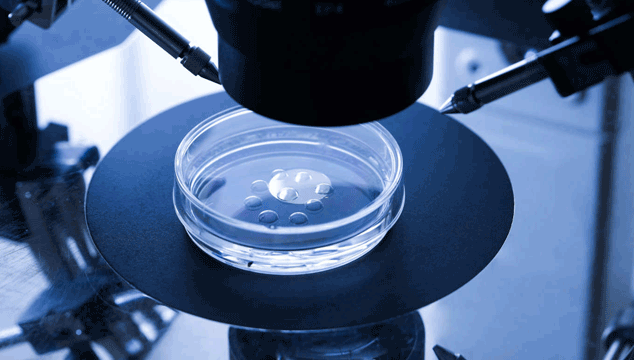

As far as fertility goes, there are many different things that affect the likelihood of getting pregnant or not. However, one of the best things that a couple can do for fertility is to get rid of bad habits that they might be holding on to. Smoking, even if it is only socially or every once in awhile, can really have a negative effect on fertility.
Drinking alcohol can also have a very negative effect on fertility and chances of conceiving. It’s also important to note that if a woman drinks excessive amounts of alcohol while she is pregnant (even if she doesn’t know yet that she is pregnant), she can really harm her pregnancy, and her baby even has a chance of suffering from fetal alcohol syndrome.
Of course, using illegal drugs is a huge issue when it comes to fertility and any of that type of stuff will be a hindrance to getting pregnant. Not only will drinking, smoking and drug use hurt a woman’s chances of getting pregnant, they are horrible for an unborn baby to be exposed to as well. So, it is of the utmost importance to put a stop to these things before getting pregnant.

One of the most common questions when it comes to fertility is which sex positions are best for conceiving. The truth of the matter is, the position is really not that important. As long as you “get the job done” so to speak, the position doesn’t really matter.
However, if you want to boost your chances of getting pregnant, you can try to use a position that allows for very deep penetration. Some of the best positions for deep penetration are “from behind” or “doggystyle” position. Woman on top position is also great for deep penetration because the woman gets to control the action, so to speak. But then there’s always gravity working against her, and you do need to keep the sperm inside where they can do their job! Missionary position is also one that can help to deposit the sperm close.

Many experts believe that women who orgasm during sex are more likely to achieve pregnancy quickly.
This is because of the “upsuck” theory.
This theory states that during orgasm, the uterine contractions help to “suck” the sperm up into the uterus, therefore getting the sperm where they need to go more easily, and helping to achieve pregnancy. Of course, this means that both the man and the woman will need to orgasm relatively close to the same time in order for this theory to work. It is important to remember also that the upsuck theory is just a theory and is not a proven guarantee of what will help with pregnancy. However, an orgasm during sex is never a bad idea, so go for it!

It’s very commonly known that many people advocate laying down after sex in order to help the sperm reach the egg easily and quickly. However, this has not been proven, it’s pretty much only a wives tale. However, that being said, if you wanted to lay down for a few minutes after sex, it’s definitely not going to hurt anything.
Prop a pillow under your bottom and lay steady for 15 minutes. It can’t hurt! And it may just get you pregnant!
The premise behind this is that laying down for a few minutes after sex allows the sperm to have a “head start” to get to the egg. It’s basically trying to prevent any sperm from leaking out. So, if you are laying down for a few minutes after sex, then you are pretty much preventing gravity from taking over.
Like we mentioned before, it’s not proven to work, but it actually kinda does make sense. So, if you want to try it, go for it! If you read on internet message boards and forums, you will even hear about women who try to stand on their head after sex, put their legs up in the air, or even use a menstrual cup (like the Diva cup) to keep sperm from leaking out.

One of the most important and best things that a woman can do to boost her fertility is to make sure to take a good quality prenatal vitamin each and every day. Most people think of prenatal vitamins, they think of women taking them after they find out that they are pregnant. However, it can actually be very beneficial for women to take a prenatal vitamin before they even start to try to conceive.
This is because there are so many vitamins and nutrients out there that most women (and men, for that matter) are deficient in. We, as a whole, don’t usually eat as well as we should, and this can cause nutritional problems. Taking a daily prenatal vitamin can help to solve those nutritional problems by making sure a woman gets the vitamins and nutrients that she needs. This can help to balance out the body and help a woman to be as healthy as she possibly can. It’s really a great idea to start taking a prenatal vitamin before trying to conceive.

Only 1/3 of women are taking #folicacid to prevent birth defects before getting pregnant. Here are some fast facts! https://t.co/N7UXY0D77Y pic.twitter.com/DJeEeo08c9
— NBDPN (@NBDPN) October 16, 2017
Folic acid is one of the most important nutrients that there is when it comes to fertility. Folic acid, which is also a form of Vitamin B, is very helpful at preventing neural tube defects like spina bifida and other problems. Neural Tube Defects are defects of the brain, spine and spinal cord.
The biggest problem with neural tube defects is that they usually occur within the first month of pregnancy, before a woman usually even knows that she is pregnant.
Therefore, it’s almost impossible to prevent these problems unless a woman is already taking a folic acid supplement. This is why doctors and other experts recommend that women who are wanting to get pregnant take at least 400 mcg of folic acid before trying to conceive.
There have been studies done that show that women who take a folic acid supplement for at least one month before conceiving can actually reduce their risk of having a baby with a neural tube defect by up to 70 percent. This is a huge number and really shows that folic acid is of the utmost importance when trying to conceive.
Once a woman is pregnant, the recommended dose of folic acid jumps up to between 600 and 800 mcg per day. You can get a folic acid supplement that is already combined with your prenatal vitamin, or you can get one that is on it’s own. Another great thing about folic acid is that it is a water soluble vitamin, so that if you happen to get too much of it, your body will flush it out on it’s own.

One of the most important minerals when it comes to fertility is zinc. Not only is it an important nutrient for female fertility, but it’s also very important for male fertility as well! Some studies show that 85% of pregnant women are actually deficient in zinc, so that should tell you what a very important mineral it is. For women, zinc is really helpful for regulating hormones and producing healthy eggs. Zinc also really helps with maintaining proper follicular fluid levels, which makes sure that the egg can travel down the fallopian tubes safely.
There are several food sources of zinc that you can use to obtain the proper levels of this mineral. Some of the foods that are highest in zinc include beef, lamb, calf liver, oysters, yogurt, turkey, peas and shrimp. If you feel like you are still not getting enough zinc, there are zinc supplements available, or you can definitely get a prenatal vitamin that contains the appropriate amount of zinc.

Fertility tips are not just for the ladies. There are a ton of things that guys can do as well to help to make sure that they are doing all they can to maximize their fertility as well. Infertility and fertility issues are often thought of as a woman’s problem, but the truth of the matter is that up to 30 percent of all fertility issues are actually the result of a male fertility issue, and another 30 percent of all fertility issues are a result of a combination of male and fertility issues.
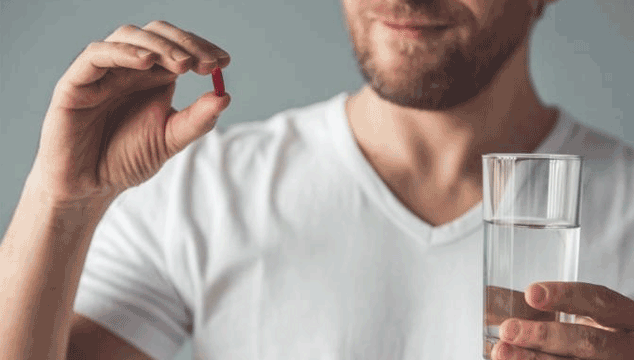
So, as you can see, it’s actually really important for guys to do what they can to boost their fertility as well.
One really important thing that guys can do to increase their fertility is to take a daily men’s vitamin. This will help to fill in any nutritional gaps that might exist and will help to make sure that your guy is getting all of the vitamins and nutrients that are needed for healthy sperm. Zinc is an example of one mineral that is incredibly important to sperm health. However, there are a ton of different vitamins and minerals that do contribute to male fertility, so it’s so important to make sure that your guy is getting a good supply of all of them.

Speaking of sperm health, another important aspect of sperm health is making sure that your guy’s testicles do not get overheated. When the sperm get overheated, it can kill sperm count and cause a lot of problems with male fertility.
This is why it’s important to make sure that your man does not wear briefs or extremely tight underwear or other tight clothing like biking shorts. These can cause the testicles to overheat and kill sperm. Another important thing to remember is to keep your guy away from hot tubs, saunas, and hot baths, since those can all kill sperm.

Of course, men who eat a healthy diet and have a regular exercise regimen are often healthier overall than men who do not do these things, so it’s a good idea to have your man have a healthy diet and try to make sure that he stays active.
Also, drug use, smoking, and drinking alcohol have all been proven to have a detrimental effect on sperm counts as well, so it is definitely a good idea to have a talk with your guy about stopping these bad habits before you get serious about trying to conceive. Not only will all of these things cause problems with male fertility, but can actually cause problems in your everyday life as well, so steer clear of these things.
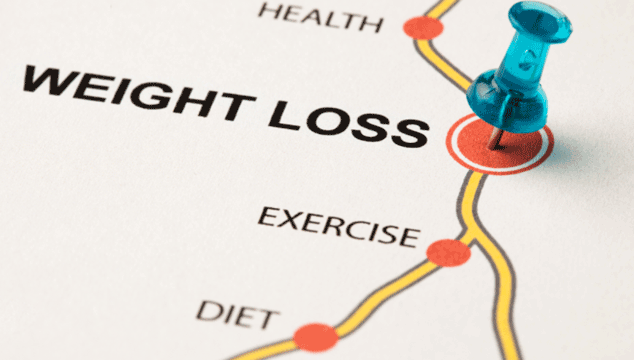

Another lesser known, but still serious, issue when it comes to male fertility is workplace safety. It might sound crazy, but there are actually many chemicals and toxins that can be found in the workplace that can have a detrimental effect on sperm. This is especially true for men who work in factories and are exposed to chemicals such as paints, insecticides, auto parts or other potentially harmful things. Especially if your man has been working in a dangerous industry for a long time, take special care to establish the risk and to make sure that you are doing everything you can to minimize any risk.
As you can see, it’s so important to make sure that guys prepare for trying to conceive as well. It can be difficult to focus on male fertility, since usually the majority of the focus when it comes to conception is on women. However, male fertility is definitely important as well, so guys should try their hardest to do their part to boost their fertility and make things happen!

Weight and fertility go hand in hand. It’s something that a lot of us wish wasn’t true, but unfortunately it is. Being overweight can be detrimental to trying to conceive, and can make even the healthiest woman suffer from fertility issues. This is because of, what else, hormones. Hormones are affected greatly by weight, and women who are overweight can have a hard time ovulating.
This is because extra weight provides the body with a steady stream of estrogen, which some experts say is almost like being on a low dose birth control pill, all the time.
Being overweight can also be a risk factor for PCOS, a hormonal disorder where the body produces too many male hormones, and can shut down ovulation altogether.
It might be a crazy and overwhelming thought, but there is good news. Doctors say that even if you are overweight or obese, there is hope when it comes to trying to conceive. By losing as little as five or ten pounds, experts agree that many women can reset their hormones and give their fertility a boost.
If you are overweight and trying to conceive, opt to start with something simple and just lose a few pounds at a time. This could be all you need to reset your hormones and get back on the right track towards conceiving. Just make sure that you pay attention to your weight since it is a big risk factor towards infertility as well as other health problems that can be an issue also.

Another thing that is important to fertility that is rarely talked about is male weight and it’s effect on fertility. Many people do not realize that a man’s weight is just as important as a woman’s when it comes to trying to conceive. Obesity in general is associated with male fertility, and if a man is overweight, it is most likely going to make it very hard for him to father a child.
Something that many people don’t know is that men with larger waist sizes have a lower level of testosterone, meaning it is harder for them to produce healthy sperm. For many years, male fertility has often been overlooked and ignored, but now, we are finally starting to see an emphasis on how men’s weight issues can affect their fertility and it’s really important that we take notice.

The world of herbal supplements is a vast and quickly growing world when it comes to fertility. More and more couples are wanting to take a “natural” approach to getting pregnant and to their fertility, and for this reason, herbal medicine is becoming much more popular as the focus of many couples is on being “natural” and “going green.”
The best part about herbal supplements is that they are natural and come from plants and other organic substances. Herbal supplements have been around for hundreds, if not thousands of years, and have long been used in ancient times as a part of Chinese Herbal Medicine. There are so many different herbal remedies out there, you can really pick and choose the ones that work best for you. You can even combine herbal supplements to “mix and match” and make your own little supplement regimen. There are so many different ones that you can try, depending on your own particular needs. It can actually be overwhelming to pick out which fertility herbs that are best for your particular situation, so make sure to do your research on this!

Vitex is one of the most popular supplements out there when it comes to herbal medication. Vitex is so popular because it does not contain any actual hormones itself, but it helps to balance and “calm” the hormones of the body. Vitex can help to increase progesterone, prevent miscarriage and can even help to reduce the advancement of endometriosis.
For women who have severe PMS symptoms, Vitex can even help to reduce those. Women who have irregular or missing periods can also benefit from Vitex. It can even help to reduce ovarian or uterine cysts. For milk production, Vitex can help to stimulate breastmilk production. It can even help reduce the appearance of acne! If that’s not a helpful herb, I don’t know what is!

Another powerful fertility herb, Dong Quai is one of the most potent fertility herbs that are out there. It’s actually referred to as a blood tonic and helps to increase circulation to the reproductive organs. Women who have no periods or irregular or absent periods can really benefit from Dong Quai. It promotes blood flow to the uterus and nourishes the blood, helping to increase iron levels and to build the uterine lining. Dong Quai can also be helpful for women who suffer from PMS or painful periods. Dong Quai is certainly one of the most powerful fertility herbs that exist today.

We are all familiar with raspberry the fruit, but did you know that the leaves of the red raspberry plant are actually extremely beneficial when it comes to fertility?
Red raspberry is incredibly nourishing when it comes to iron and other nutrients. It’s super helpful when used for anemia and it’s astringent properties can help to nourish the uterus and stop any bleeding that might be present. Uterine prolapse, fibroids, cysts and endometriosis can all be helped by red raspberry leaf, and it’s even a helpful herb for men as well. You will most definitely want to try red raspberry leaf if you are getting started using fertility herbs.

Maca is a root like vegetable that grows in Peru, in some of the harshest temperatures in the entire world. This super hardy root is great for fertility purposes and has been used since the 1500’s. Maca doesn’t contain any hormones itself, but helps to balance and nourish hormones in the body. Maca is great for balancing the hormonal system and also supports normal sexual function. Maca is definitely one of the most commonly used and popular herbs out there when it comes for fertility.

White Peony is a beautiful flower that many people enjoy. However, it is also a very helpful and useful herb for fertility. White peony is used often for painful menstrual periods, and also can move blood towards the pelvic area. This can be really helpful for PCOS, uterine fibroids and endometriosis.
White peony also really blends well with other herbs, and that makes it especially useful. For example, when white peony is combined with Dong Quai, it can be really helpful for treating endometriosis pain and treating anemia as well. This herb is also really useful when combined with licorice root, and works well for reducing the size of fibroids, and also as a treatment for PCOS.
However, be very careful to never use White Peony during pregnancy, since it can cause a problem with bleeding.

Conceiveeasy is a non-prescription fertility blend, made from a combination of various herbs, vitamins and minerals. Not only does the Conceiveeasy TTC Kit come with fertility pills to help you get pregnant, but it also comes with an array of goodies that go along with your trying to conceive journey. Goodies like 10 pregnancy tests, 10 ovulation predictor kits, a basal body thermometer and a BBT chart to get you started on your journey. Conceiveeasy’s fertility pills help restore a more regular cycle, and can also help induce regular ovulation for those not ovulating properly. Of course, the OPKs and BBT will also help you chart your cycles better, so it’s a triple whammy to help you get pregnant.
These are just some of the hundreds of different herbal and natural remedies for fertility problems. There are so many different herbal treatments out there and no matter what sort of fertility issue or problem you are having, you can rest assured that there is a natural remedy out there for you. If you are especially interested in natural fertility supplements of Chinese Herbal Medicine, you should definitely seek out an expert on the subject. You will find that people who know a lot about CHM and different herbal remedies will be a great source of assistance and help when it comes to fertility help.

Another common question that many women have when it comes to trying to conceive is “when is the right time to see a doctor?”
It can be very daunting if you are not getting pregnant right away, and many women want to rush right out and go see a doctor to make sure they have the best chances of getting pregnant. On the other side of the coin, there are also many women out there who wait too long to seek fertility advice from a doctor, since it can sometimes be a very nerve wracking or scary experience. Knowing when to seek professional help is really important. So, when is the right time to see a doctor for fertility issues?

While there is obviously no “perfect” answer for every situation, experts have set up some guidelines for women to use when it comes to getting pregnant and seeking fertility help. For women under age 35 who are relatively healthy otherwise, doctors suggest trying for one full year on your own before seeking fertility help. After that one year mark has passed, doctors say it can be a good idea to seek fertility advice from a doctor.
For women who are over age 35, doctors say six months is a good time frame to start thinking about seeing a fertility doctor. Women who are over age 35 are more likely to experience fertility issues, and time is of the essence when it comes to treating these issues, so that is why the recommended amount of time is less for a woman who is over age 35. The truth of the matter is, some women simply take longer to get pregnant, and it can take up to a year before you really need to start becoming concerned about potentially harmful fertility issues.

If you do end up having to seek help from a fertility doctor for fertility issues, it is not a time to panic. In fact, many fertility issues are quite mild and can be remedied with a little bit of help from a medical professional. Just because you have to see a doctor is not a reason to worry. Just think of it as getting a little extra help and a little extra fertility boost from someone who really knows all of the in’s and out’s of fertility. Even if you do have to seek help from a fertility doctor, it doesn’t automatically mean that something is wrong or that there will need to be intensive treatments done.

Probably the most common fertility medication on the market today is called Clomid. Clomid is an oral medication that stimulates ovulation. Since one of the most common causes of fertility problems is ovulation issues, Clomid is one of the most commonly prescribed drugs out there when it comes to fertility. It has been around for many years, and it works really well.

In fact, more than 80 percent of women who start Clomid will actually begin ovulating because of the drug. It’s super powerful, super potent and is also usually received very well by the women who take it. If you are going to see a fertility doctor for the first time and they suspect an ovulation problem, it’s likely that you are going to start on Clomid. Don’t panic and you will know what to expect.

If you must seek help from a fertility doctor for your issues, there are a ton of different options out there to help you get back on your feet as far as trying to conceive is concerned. If Clomid doesn’t work, or isn’t an option for you, your doctor might need to try something different. Sometimes, after the first rounds of Clomid don’t work, (or if your doctor doesn’t think that Clomid is a good fit for your particular needs), he or she will probably try a more potent medication to stimulate ovulation.
Sometimes doctors will prescribe gonadotropins after Clomid. These are injectable medications that are much more powerful and more potent than Clomid. If these medications don’t do the trick, don’t worry. Doctors have many more options available to help treat whatever the issue might be in your particular case.

When medications like Clomid and other drugs just simply aren’t working for you, there might come a certain time when you and your partner will need to consider other options. The field of assisted reproductive technology is so vast and is growing all the time, so no matter what the issue, it is highly likely that you will be able to find something that will work best for you.
There are so many different options available today, it’s almost mind blowing. From sperm donors, to IVF treatment or surrogacy, there really are so many different roads to parenthood. No matter what is standing in your way or what is holding you back, your doctor will be able to guide you and give you ideas and options for your particular case. There is always a way to achieve your dreams!

Stress is another really important aspect when it comes to fertility,and it’s one that not many people touch on for a number of reasons. Although it might sound crazy, stress can have a detrimental effect on fertility. You might already know that.
Chances are, you have heard someone say “don’t worry about it and you will get pregnant”, or “it will happen when you stop trying.”
It’s a generalization of the same thought, that stress is harmful to fertility, and it’s the truth. Women who are under a great deal of stress are more likely to turn to alcohol, tobacco and other drugs as a way of stress soothing. These women are also less likely to be having sex on a regular basis.
It’s not just that either. Stress can actually cause the brain to send mixed up signals to the hypothalamus, the part of the brain that is responsible for hormone signals and regulation. This is also the part of the brain that tells the ovaries to release the egg every month. Therefore, too much stress can actually cause the body to stop ovulating. There are even some studies that show that high stress levels in men can also lead to lower testosterone levels and in turn, poor sperm production as well as poor sperm health.

One study that showed just how helpful it can be to de-stress when trying to conceive was a surprising one. An Israeli study actually showed that women who were entertained by a clown immediately following their IVF treatment had a greater chance of the treatment working than women who did not. This just goes to show that laughter, as we all know, is a great stress soother.
Ever heard the phrase “laughter is the best medicine”?
So, what can you do to reduce stress in order to improve your fertility?
• Get enough sleep at night. Getting enough sleep is the single most important thing that we can do to be well rested and to feel better during the day, however, most of us are pretty bad at actually doing it.
• Exercise is another really great way to reduce stress levels and make conception easier. Exercise helps to relax the mind and the body both, as well as releasing toxins during your exercise session.
• Yoga, as well as meditation can also both be really helpful to women who are looking for a holistic approach to stress reduction and improved fertility.
• If you feel like it, try writing in a journal for a few minutes each day, or talking to a trusted friend or family member about what is going on in your life.
• Learn about your cycles a few months before you start trying.
• Learn about your cycles a few months before you start trying.
• Have sex 3-4 days before ovulation so the X-sperm have the best chance to meet with the egg while the Y-sperm die off.
• If you still feel like you are overly stressed, and you think that it might be potentially affecting your fertility, you might want to make an appointment to speak to a therapist or counselor.

One of the most important aspects of fertility is one that no one hardly ever talks about or gives a second thought to. That aspect is your relationship with your spouse, partner or significant other. While trying to conceive can be an extremely exciting and happy time for a couple, it can also be a time full of stress, worry and struggle. Keeping up with dates on the calendar, planning sex for the right times,and living your life by a schedule can really take a toll on even the happiest of couples.
Trying to conceive sex can sometimes become so routine that it’s just not fun anymore. Tonight, again?!
Couples who are actively trying to conceive need to keep an open mind and take some time to focus on their relationship during this extra stressful time.
Couples who are trying to conceive need to make sure to keep the lines of communication open during what can become a stressful time. Both sides of a couple, both the man and woman, can have lots of different feelings and emotions as they travel along this journey. It can be very difficult to go through months and months (sometimes even years!) of trying to conceive with no results.

It can become really stressful and take all of the fun out of a relationship sometimes. It’s so important that couples make the time to talk to each other about whatever it is that they might be feeling as they try to conceive. Keep those lines of communication open, and if you do feel like your relationship is struggling because of your fertility issues, seek help from a professional like a counselor or therapist.
Another really important aspect of trying to conceive and keeping your relationship intact is that couples should not let sex become only about getting pregnant. If you are only having sex on the fertile days, and kind of getting to a point of ignoring each other on the other days, that can quickly become a real problem, plus it can cause lots of hurt feelings and hostility.
Make time to be intimate with your partner (even if it’s not your fertile time!) and don’t make every interaction you have be only about trying to conceive. Make sure to take time to have those romantic nights with your partner, and make sure that you are being intimate even when you are not ovulating.
It can really be a problem when trying to conceive becomes a “chore” and feels like it is all business, so take time to make sure that you don’t let that happen.
Make sure to take time to really connect with your partner. Regular date nights can be a great way to keep your connection close and your relationship growing even during a time that can be stressful. Don’t make everything all about having a baby. Remember that you were a couple first and you have to have a solid, strong connection in order to be good parents on down the road. Make time for each other, and don’t let yourself forget why you fell in love with the other person in the first place.

Trying to conceive can really take a toll out of even the strongest of relationships, so you have to really have your heads on straight when you are trying to have a baby. Even though you would think that attempting to get pregnant would be a great thing for a relationship, it can cause a lot of struggles, tension and hard feelings, especially if it doesn’t work out right away. Keep your eyes on the prize and keep your connection strong with your partner.

As you can see, there are so many different aspects of getting pregnant, and this doesn’t even begin to scratch the surface of trying to conceive. If you are thinking about trying to get pregnant, it will probably be the biggest decision you will make in your life, and it’s totally normal to want to know everything you can and to learn as much as possible along the way.
Hopefully this article has given you some ideas, hints, tricks or just plain old inspiration to help you along the way and give you the boost that you need to keep on trying.
Never give up, and remember that you can overcome any obstacles that stand in your way to trying to conceive. It can be a really great and memorable time, but it can also be a struggle for some couples. You have to keep your head up and keep moving forward, and know that it will all work out in the end.
Don’t be afraid to reach out for help if you need assistance when it comes to getting pregnant. There are so many resources out there. Whether it be helpful online articles like this one, message boards, support groups or forums, or local programs for couples who are trying to conceive, there are resources out there that can help you.
Also, don’t be afraid to talk to your regular doctor or midwife. He or she most likely knows your family history and your own personal medical history, so your personal doctor can be a really good asset when it comes to trying to conceive. Also, if you have trouble trying to conceive, don’t be afraid to reach out to a fertility specialist and see if there are any things that can help you try to get pregnant.
You are not alone in your journey, and that is probably the best part of trying to conceive.
The other women who struggle with trying to get pregnant are almost like a family, and are amazing at helping others, giving tips and tricks and just overall support. Reach out to these women, become a part of this community, and it can really be helpful to your journey.
Good luck and wishing you baby vibes as you embark on your trying to conceive journey!




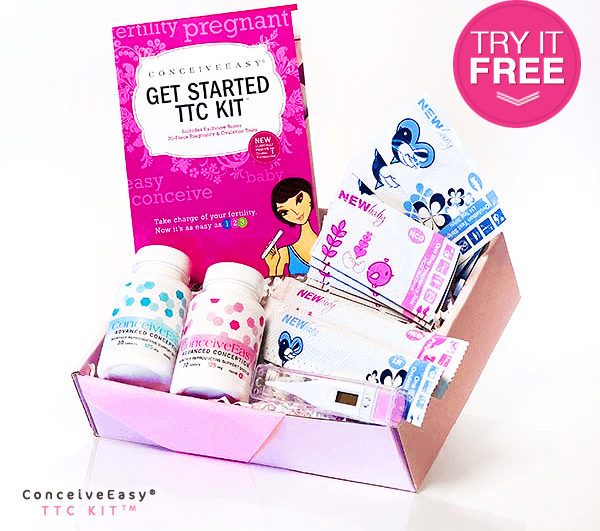








Comments